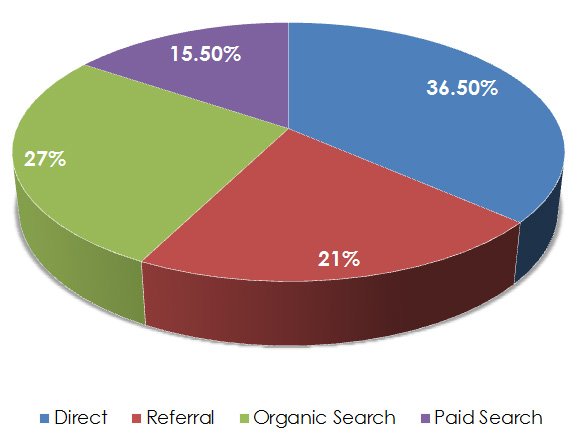Google Analytics Benchmark Results
Based on anonymous data sharing gathered from Google Analytics users all over the world, Google has just released benchmark results to Google Analytics users via an opt-in only eNewsletter. Absolute metrics such as total # visits, pageviews, or conversions for all opted-in websites are NOT reported. The benchmark report includes the following data. Review, share, comment or steal–we don’t care.
PLEASE NOTE: The date range Google used for comparison is from November 1, 2010 to February 1 2011. Then, comparison is done with data from November 1, 2009 – February 1, 2010. So, the data is about as recent as possible.
Analytics Benchmark Data
Compared to a year ago, websites on average have seen reduced pages per visit, reduced average time on site, and a reduced bounce rate.
Pages/Visit Show Decline
Pages-per-visit also show a slight decline across all traffic sources (with only the slightest increase in referral traffic) to people’s websites also saw decline.
* Comparison is done with data from November 1, 2009 – February 1, 2010.
Traffic by Source Indicates Shift toward Search Engines
When it comes to benchmark data for percent of total website traffic by source, the numbers seem to indicate an overall shift toward traffic from search engines and away from referral traffic. This is more likely due to people’s search patterns rather than a de-prioritization of efforts toward inbound link building. Seems people just search/click and then search/click.
The following shows the current benchmark for traffic by lead source. Again, the shift toward SEs is slight (+1%).

Conclusions (we mean guesses)
The data may appear insignificant, but remember the law of averages from high school and you realize that if every participating Google Analytics-enabled website is in the sample (that’s literally 100’s of millions of sites) even a slight variation should make your ears perk-up. So what do we think this means? Here are a few guesses–I mean conclusions…
User Behavior is moving away from clicking on referring links between sites (presumably because of traditionally low relevance)
Users are beginning to change the way they find and consume information. They will either look at social media as a referral source, or just go back to the search engine and ask again (or ask slightly differently). (stay tuned for the bridge that Google is already building here called Google+; our review coming soon).
Overall, the value of a specific traffic source over another is marginalized. All traffic sources (on average) give you about the same pages-per-visit (or so the data tries to indicate). We believe higher value should be given to referring and organic search traffic, but that just means your efforts are working–not working better.
Your thoughts? Comment below. Benchmark fanatic? Check out how to run your own Google Analytics benchmark study.
Get the Email
Join 1000+ other subscribers. Only 1 digest email per month. We'll never share your address. Unsubscribe anytime. It won't hurt our feelings (much).
Discussion
Comments are now closed.